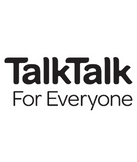Internet access refused by almost one fifth of UK population

Almost one in five Britons are internet refuseniks, according to a recent survey. The new figures apparently show more than twice as many people in the UK are offline than previously thought.
What does the data say?
The Oxford Internet Institute (OII) found 18% of respondents to its survey had no home or mobile connection to the net.
Previous estimates by the Office for National Statistics put the number of non-users at about 7.4%.
The Oxford Internet Survey has been running since 2003 and looks at how many people use the net, how they use it and what experiences they report.
Almost one fifth of the UK not connected
According to the research, 69% of non-users “just aren’t interested”.
A further 18% said they didn’t know how to use it and for 10% of non-users, privacy worries were cited, a huge increase on the 1% concerned about this in 2013.
Among users, the OII found a dramatic increase in the number of people accessing the net for entertainment, business and banking since 2013.
An impressive 83% of internet users now pay their bills online, compared to just 59% in 2013.
The last survey showed 49% of users watched films and series via web services like Netflix or BBC iPlayer, the figure is now 72%.
Music consumption has seen a slightly less substantial increase. In 2019, 76% of internet users report listening to music through streaming sites and apps such as Spotify or Youtube, a 12% rise in 2013.
The UK government’s digital strategy, and perhaps technological inevitability, means more and more government departments as well as essential commercial services are moving online.
Access to health care, social security and employment opportunities are becoming increasingly dependent on citizens having an internet connection. At the same time, it is becoming less cost effective to continue doing things the old fashioned way via face-to-face interactions or by post.
This poses a serious risk of a “digital divide” between users and non-users, according to the OII.
Who are the internet rejecters?
Dr Grant Blank, survey author and fellow at the OII, said non-users were “older, proportionately less well-educated and have lower incomes.”

The research showed that internet connectivity was almost 100% for citizens under 50. Over the age of 50 there is a rapid drop of about 2% a year.
Among those who earned over £20,000 a year, 90% were online. However, about 40% of people on less than £12,500 a year do not have broadband or mobile access to the net.
Similarly, 90% of people with third-level qualifications were connected. A startling 64% of those with no qualifications do not have broadband or mobile access to the internet, nor do 30% of those with basic educational attainment.
The government has decided on a £400,000 Digital Inclusion Fund to address the problem.
Minister for Digital Matt Warman MP said it would “help older and disabled people get online and acquire new digital skills”.
“Through our Digital Skills Partnership we are continuing to work with our partners across the public, private and charity sectors to boost people’s capability and confidence in a collaborative way so everyone can benefit from our world-leading digital economy,”
The institute’s Dr Blank, Survey Research Fellow, Oxford Internet Institute, and author of the survey, said “the majority of people are having positive experiences of internet use.”
“However there is a widening perception gap between internet users and non-users, with non-users resolutely avoiding the internet,” he said.
“Often these non-users are from low income groups, where being online could potentially improve their quality of life.”
What should be done?
The survey analysis concentrated on the different attitudes to risk and privacy between users and non-users.
Of current internet users, 52% said the internet was a threat to their privacy, a small increase of 5% on the 2013 result. Of those who avoided the internet 72% recognized the internet as a privacy threat.
While almost 70% of current users said they were “not comfortable” or “not comfortable at all” with targeted advertisements by companies, the number who take simple steps such as keeping contact details, medical issues, marital status, age, and online purchases private was low at between 26% and 39%.
“There’s an interesting paradox here with internet users being less likely to take action to protect their privacy while non-users tend to be put off by privacy concerns,”
“These concerns could perpetuate the digital divide, with many people missing out on the benefits of the internet, such as access to health information, employment opportunities and reduced prices online,” he said.
“There is a real opportunity to engage with non-users to address their concerns and help them understand the opportunities the internet can bring. We hope this survey contributes to the public debate about what further steps can be taken to narrow the digital divide.”
The survey suggests it is media reports of privacy issues which may be deterring people from going online, rather than the ecosystem which permits and encourages those violations in the first place, arguing that among users “most people do not report concerns about protecting their privacy”.
“Non-users listen to the narrative about online harms, and they are more concerned than users about privacy violations on the Internet. The narrative is having an effect; some non-users say it is the most important reason keeping them offline,” the report said.
However, the report states that there has been little change in “bad experiences of users” since 2013.
Such experiences are categorized as malware or virus infections, fraudulent purchases, getting obscene or abusive emails and credit card details being stolen.
The report also found 79% of internet users are more likely to believe technology is a net benefit but only 29% of internet avoiders agree. Contrarily, 72% of non-users said it was often easier to do things without technology, compared to 38% of users.
If you know someone who needs some help getting online, start here with Selectra’s handy guide.


Better broadband and TV for less. Sign up today.
Call for free to get your TV & Broadband sorted today.


Save money on your home bills with Selectra
Selectra is currently closed. You can leave your phone number and get a free callback.
